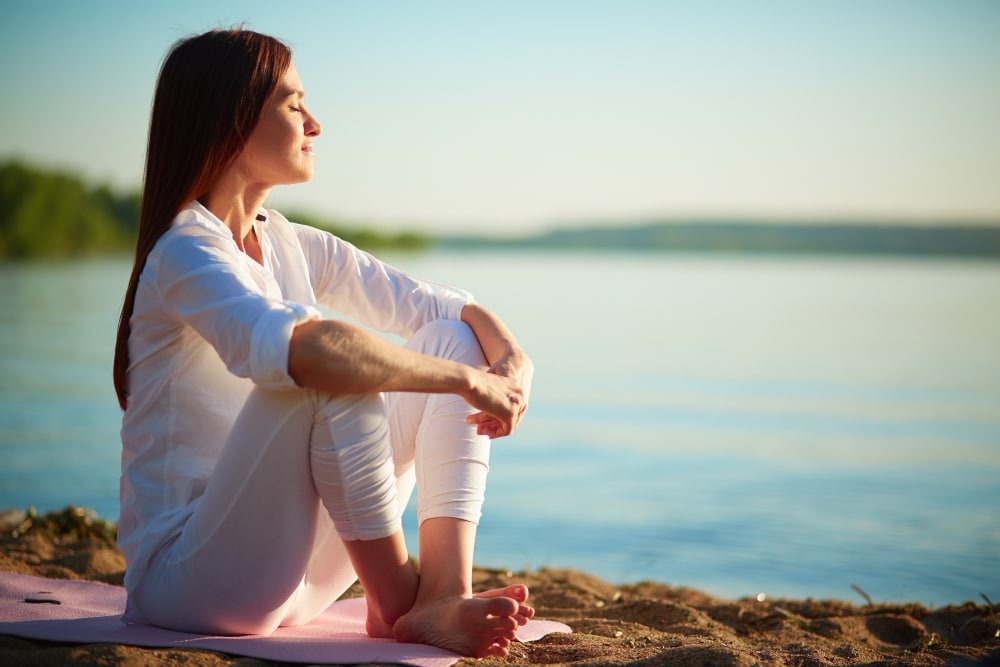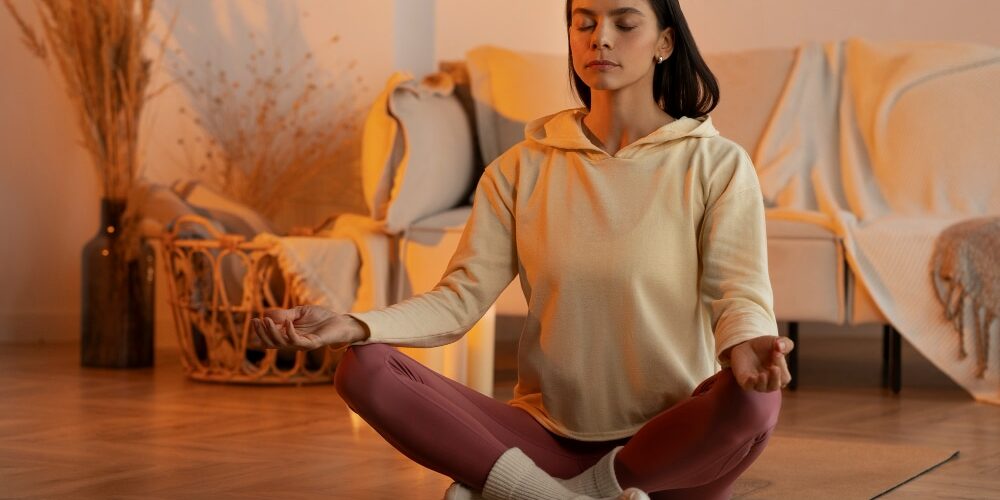Meditation is a kind of mind exercise that trains your brain to increase its focus. This brings inner peace and more awareness of self and surroundings. Though many cultures suggest different meditation practices, the goal is the same, to achieve a heightened state of consciousness. Today, we will talk about the power of meditation and how it can unlock doors for peace and tranquillity.
How To Unlock the Power Of Mediation?
Fiction writing and media have presented meditation as some kind of superpower. However, it is very achievable and the results are simply mind-blowing. You can use different techniques to practice meditation.
Mindfulness Meditation
This starts with focused Attention. This is a basic exercise and you simply have to focus on a singular point. It could be controlling your breath, repeating the same phrase or even staring at one point for as long as you can hold. This practice enhances your ability to be non-reactive to mental and emotional experiences. It’s having power over oneself. When one can control his reaction to situations, it solves a lot of problems in real life.
Embracing Thoughts
This is about observation of emotions without being judgemental about them. As a human, we need to rise above our emotions to control them. For that, we have to embrace our thoughts and get to know ourselves. Only this will help us to sort out what’s best for us.
Visualization
This technique works by creating mental images or scenarios to evoke feelings of relaxation, healing, or positive change. It enhances your creativity and helps you to manifest your dreams.
Loving-Kindness
This is a very powerful technique and requires willpower and a positive attitude. You have to generate feelings of love and compassion through the repetition of phrases or mantras. When you repeatedly send a positive message to your brain, it finally accepts it. This helps in being loving and kind towards humanity, life and the universe. It also enhances empathy and emotional intelligence.
Body Scan technique
In this meditation technique, you have to move your attention through different parts of the body systematically. This helps in observing sensations and promoting relaxation and awareness.
 The general concept is that you do meditation sitting with your legs crossed and hand on each knee. However, you can practice meditation in various postures, including sitting, lying down, or even walking. Also, it can be done individually or in a group setting, with or without guidance from a teacher or recorded audio.
The general concept is that you do meditation sitting with your legs crossed and hand on each knee. However, you can practice meditation in various postures, including sitting, lying down, or even walking. Also, it can be done individually or in a group setting, with or without guidance from a teacher or recorded audio.
Moreover, meditation is usually linked with religions but in real, it is just a healthy activity with lots of mental, emotional, and physical health benefits. This dates back to thousands of years and even modern science approves of the power of meditation and its benefits. You can do meditation daily at the ease of your lifestyle and routine and experience its effective results.
Benefits Of Meditation
- Meditation activates the body’s relaxation response. This reduces levels of stress hormones and promotes a sense of calm and well-being.
- Regular meditation practice enhances your cognitive function, sharpens your attention and increases the ability to sustain focus on tasks.
- Meditation creates awareness of thoughts and emotions. It enables people to skillfully face challenging situations and manage difficult emotions.
- Meditation promotes relaxation and reduces insomnia by calming the mind and body. This leads to increased sleep duration with improved sleep quality.
- As meditation regulates emotions, it helps in personal growth and development.
- Reduced stress levels and anxiety mean a significant decrease in high blood pressure. So people with high blood pressure can regularly practise meditation to get hold of their health. However, keep in mind that meditation is just an aid to achieving a healthy lifestyle and is not a replacement for medicine.
- The power of meditation exceeds our imagination. Our mind controls the pain in our body. So with meditation, we can train our minds for pain management too. Most Japanese meditation techniques focus on this.
- It also helps you in healing from emotional traumas and past experiences.
- Overall, meditation keeps you healthy and happy. Positive thoughts, a focused mind and improved self-awareness bring a sense of delight.
How To Do Meditation In Your Daily Life?
- Establish a Routine. Be dedicated and take time each day for meditation practice. You can choose any time of your convenience. It can be in the morning, during lunch breaks, or before bedtime. Try to be consistent. Remember that consistency is key to experiencing the full benefits of meditation.
- Designate a quiet, clutter-free area for meditation practice. You can use items that inspire tranquillity and focus, such as candles, incense, or meaningful objects. A sacred space helps signal to the mind that it’s time to transition into a meditative state.

- Just don’t limit yourself to meditation. Try to bring awareness to everyday activities such as eating, walking, or driving. Engage fully in each moment, savouring the experience without distraction.
- You can join meditation groups, classes, or online communities to connect with like-minded individuals and deepen your practice. Sharing experiences and insights with others can provide encouragement and accountability.
- Note any change for positive growth. Try to be grateful for the opportunity to nourish your mind, body, and spirit through meditation.
How Can the Power Of Meditation Impact Your Mind?
Meditation is powerful because it directly impacts the brain and nervous system. Through consistent practice, meditation induces changes in brain structure and function. It increases grey matter density in areas associated with attention, memory, and emotional regulation. Meditation also promotes neuroplasticity, the brain’s ability to reorganize and adapt.
Moreover, meditation activates the parasympathetic nervous system. This triggers the relaxation response and reduces the levels of stress hormones like cortisol. This promotes relaxation and enhances overall health and well-being. Additionally, meditation cultivates the ability to be present and non-judgmental, which empowers individuals to respond skillfully to life’s challenges and cultivate deeper connections with themselves and others.









3 Comments